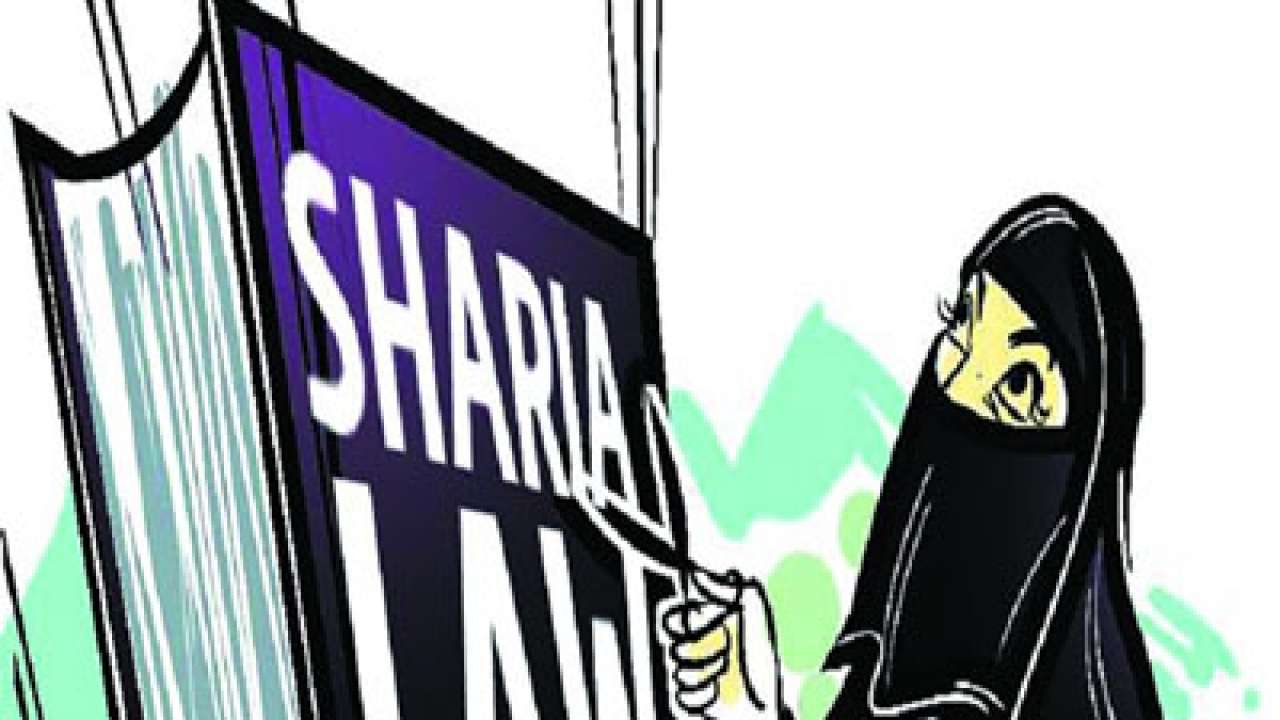Muslim group demands ban on nikah halala, question Darul Qazas

By TwoCircles.net
Darul Qaza or shariah courts according to the ulema are very much in the light of the constitution of India but on the other hand many women's rights activists and secular groups of Muslims oppose shariah courts as they are run by the ulema who have deep rooted patriarchal values. And thus we cannot expect justice to the women who have been victims of triple talaq, halala nikah, muta marriages and such other practices which are grossly unjust to the women. Yet the Ulema and the personal law board claim they are Islamic.
On the contrary Islam does not in any manner preach or promote such unfair practices that demean women and deprive them of their rights. Justice has been and will always be the thumb rule in Islam.
A press conference to question these Darul Qazas and demand practices such as nikah halala was conducted today 19th July 2018 in Mumbai by Indian Muslims for Secular Democracy (IMSD) and was addressed by Javed Anand (Convener, IMSD), Feroze Mithiborwala (Co-convener), Hasan Kamaal (Member, Working Committee) and Zeenat Shaukatali (Member, Working Committee).
Rejecting the claim of the All India Muslim Personal Law Board that the perverse practice of nikah halala as prevalent today cannot be questioned because it is Qur’anic the IMSD quoted from the Holy Quran: verses 2:229 and 2:230 of the Qur’an state: “A divorce is only permissible twice: after that, the parties should either hold together on equitable terms, or separate with kindness (2:229); So if a husband divorces his wife (irrevocably), He cannot, after that, re-marry her until after she has married another husband and He has divorced her. In that case there is no blame on either of them if they re-unite (2:230).”
The Quran prescribes prescribes an elaborate procedure which must precede a divorce and triple talaq (instant divorce) is un-Qur’anic and un Islamic .
Before the birth of Islam it was a common practice for some men to treat their wives as playthings. They resorted to the practice of frequent divorce to torment their wives, keep them hanging, prevent them from marrying another man. Verses 2:229 and 2:230 were aimed at protecting women from such exploitative and unjust treatment. This is what may be called nikah halala in the Qur’anic sense.
In sharp contrast to this, and notwithstanding the Supreme Court order of August 2017 invalidating triple talaq, the All India Muslim Personal Law Board continues to maintain that though repugnant in theology, the practice remains valid in Islamic law. In keeping with this worldview, the current-day practice of nikah halala is nothing but a “one-night marriage” wherein a Muslim woman victim of triple talaq is forced to have sex with another man who then promptly divorces her to facilitate her re-marriage to her former husband.
Thus a Qur’anic methodology aimed at protecting women from being treated as a plaything has been perverted by the ulema and turned into its very opposite: an arrangement that effectively reduces a woman to a sex toy.
The IMSD members also stated that: Nikah halala as practised today is nothing short of a shameful sex-racket, and that of a particularly obnoxious kind. Not only does it demean and degrade a woman, she or her family is obliged to pay for the “service” provided by a man for a fee that runs into tens of thousands of rupees. The said “service” is often provided by a molvi or a mufti himself. IMSD condemns the current-day nikah halala practice and anyone who endorses it.
For similar reasons, IMSD supports the outlawing of polygamy, muta (temporary marriage) misyar (traveler's stop-gap marriage).
IMSD also has serious issues with the All India Muslim Personal Law Board’s recently declared intent to create ‘Darul Qazas’ all over the country. The Board’s announcement fuels the sangh parivar and its lapdog media’s communal propaganda that Muslims owe no allegiance to the law of the land and are setting up their own parallel “sharia courts”.
Some legal luminaries among Muslims claim that Darul Qazas are in fact only a kind of alternative dispute redressal (ADR) mechanisms which are sprouting all over the world as the “new norm”. For the Board, however, it is but evident that they propose to resolve marital disputes in accordance with their idea of the sharia or Islamic law.
The question before IMSD is this: what justice can Muslim women victims of triple talaq, nikah halala, polygamy, muta and misyar marriages expect from a clergy that proclaims such blatantly discriminatory, anti-women practices are in keeping with “Allah’s laws”?
